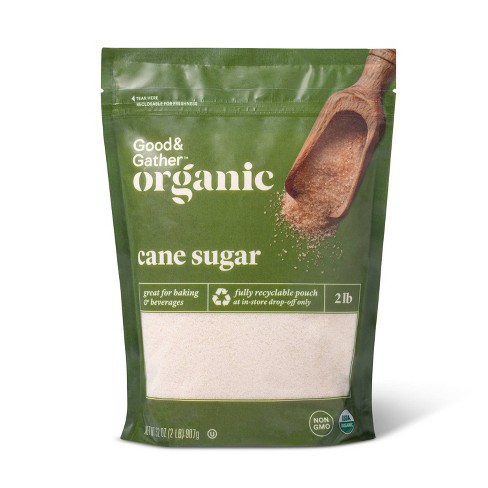The Environmental Impact of Growing Sugar and Cane in Various Regions
The Environmental Impact of Growing Sugar and Cane in Various Regions
Blog Article
Why Walking Stick Sugar Handling Chemicals Are Important for Modern Sugar Refining
The duty of walking stick sugar processing chemicals in modern sugar refining can not be overstated, as they are important to boosting both the performance of removal and the overall quality of the last item. Agents such as phosphoric acid and particular flocculants are utilized to remove pollutants, resulting in sugar that not just meets consumer expectations but likewise sticks to market requirements.
Role of Handling Chemicals
The efficiency of walking cane sugar processing hinges considerably on the tactical application of handling chemicals. These chemicals play a critical function in enhancing the efficiency and high quality of sugar removal and refining. From the preliminary stages of juice extraction to the final purification steps, processing chemicals help with various important operations.
In the extraction phase, chemicals such as phosphoric acid and calcium hydroxide are employed to optimize the clarification process, helping to eliminate impurities and put on hold solids from the walking stick juice. This not just enhances the yield but additionally ensures the quality of the end product. Additionally, agents like flocculants aid in the rapid settling of contaminations, thereby enhancing the overall process.
Triggered carbon and ion exchange resins offer to eliminate shade and smell, making certain that the polished sugar meets customer top quality requirements. Therefore, the careful choice and application of these chemicals are vital for achieving ideal end results in walking stick sugar handling.
Key Sorts Of Chemicals
Cane sugar handling depends on a selection of vital chemicals that help with each stage of manufacturing. These chemicals play vital functions in clarifying, whitening, and cleansing the sugar removed from cane.
One main category of chemicals includes flocculants, such as polyacrylamide, which aid in the information process by advertising the aggregation and settling of pollutants. Additionally, calcium hydroxide is typically utilized to neutralize acidity and help in the elimination of non-sugar components.
Lightening agents, such as triggered carbon and sulfur dioxide, are made use of to decolorize the syrup, leading to a clearer end product. These chemicals help remove color substances that may affect the sugar's look and marketability.
Moreover, phosphoric acid works as a pH regulator during the handling stages, making certain ideal problems for the chemical activities involved in sugar extraction and purification.
Other crucial representatives consist of edta (ethylenediaminetetraacetic acid), which chelates steel ions that might militarize unwanted responses, and sodium hydroxide, which assists in pH control throughout the refining process. Jointly, these chemicals improve effectiveness and make certain a premium cane sugar item.
Advantages for Sugar High Quality
Frequently ignored, the use of details processing chemicals dramatically improves the general top quality of walking stick sugar. These chemicals play a crucial role in refining procedures, ensuring that the last item meets rigorous market criteria for pureness and taste.

Furthermore, processing chemicals help in accomplishing a regular granulation and appearance, which are vital for customer approval. By controlling the formation process, these chemicals make certain that the sugar crystals develop consistently, bring about a more appealing item that dissolves well in numerous applications.
Additionally, making use of these chemicals can improve the rack life of walking cane sugar by minimizing moisture absorption and microbial development. Overall, the calculated application of handling chemicals is necessary for supplying high-quality cane sugar that meets consumer assumptions and sector demands.
Ecological Impact Considerations

Moreover, the energy-intensive nature of sugar refining, intensified by chemical use, usually results in enhanced carbon discharges. This contributes to climate change and increases worries concerning the sustainability of present refining practices. Additionally, the sourcing of these chemicals may involve methods that endanger biodiversity, such as monoculture farming, which lowers the durability of farming environments.

To mitigate these influences, sugar refiners are significantly exploring sustainable options and embracing ideal methods that resource lessen chemical use. Executing extensive environmental management systems can aid ensure that the refining process aligns with environmental criteria and promotes biodiversity. Ultimately, a well balanced strategy that prioritizes both sugar top quality and environmental stewardship is necessary for the long-lasting stability of the sugar market.
Future Trends in Refining
As the sugar industry grapples with the ecological challenges related to standard refining approaches, innovative approaches are emerging to boost both efficiency and sustainability. One considerable pattern is the adoption of green chemistry principles, which prioritize using non-toxic, biodegradable processing chemicals. This change not just decreases environmental influence however additionally addresses consumer need for cleaner manufacturing methods.
Another appealing growth is the execution of innovative purification modern technologies, such as membrane splitting up and adsorption procedures. These techniques boost the clarity and top quality of the sugar while minimizing the quantity of wastewater created throughout refining. In addition, the assimilation of digital innovations, consisting of IoT and AI, is changing operational effectiveness by making it possible for real-time monitoring and predictive maintenance, hence minimizing source waste.
Furthermore, using by-products from sugar refining, such as bagasse and molasses, is getting grip. These materials can be transformed right into biofuels or value-added products, adding to a round economic climate within the sector. Jointly, these trends signal a change towards more lasting techniques that not only improve functional effectiveness yet likewise straighten with international sustainability goals, ensuring the future practicality of sugar refining.
Conclusion
Cane sugar processing chemicals are necessary in modern sugar refining, significantly improving the efficiency and high quality of sugar extraction. The tactical usage of these chemicals not only enhances the pureness and taste of the end product however also makes sure consistent crystallization and appearance. As the market increasingly focuses on sustainability, the fostering of environmentally-friendly processing representatives is likely to shape future patterns in refining, ultimately leading to higher quality products and extended rack life for consumers.

Inevitably, a balanced method that focuses on both sugar quality and environmental stewardship is essential for the lasting viability of the sugar sector.
Cane sugar additional info processing chemicals are vital in more info here modern-day sugar refining, substantially enhancing the efficiency and high quality of sugar extraction.
Report this page